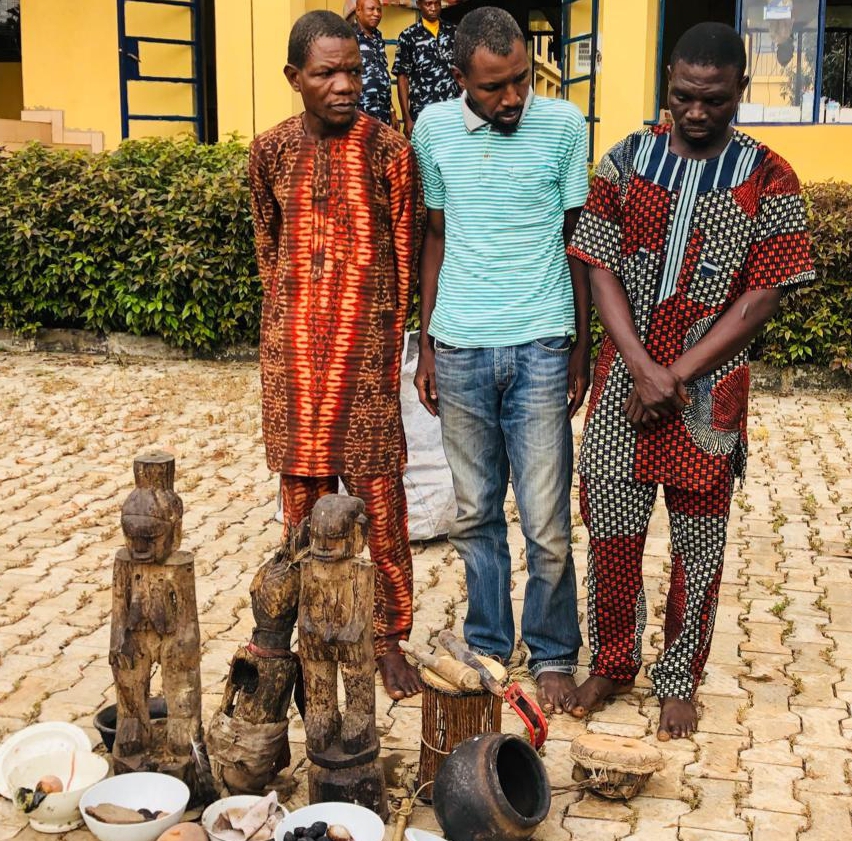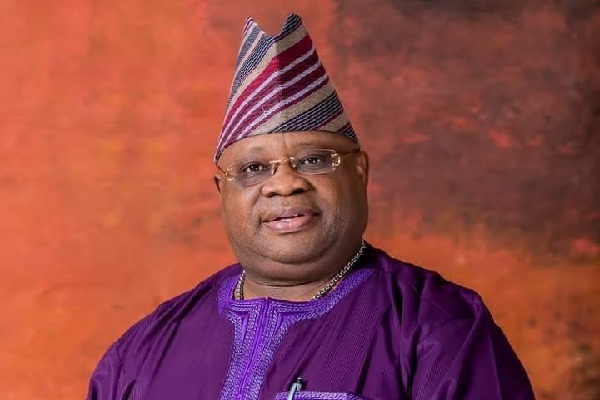Rejected gender equality bills and kiríkirì’s ‘revenge’
Busuyi Mekusi
The differentiating capacity of mammals, particularly human beings, remains distinctive quality that does not require the attention given to an anaglyph. However, the application of this discretion in matters of ethnicity, race, religion, class, and other forms of association, has created very many complications that are burdensome to human existence.
As Biblical references remain valid to human evolution and emotional development, the oppositionality that God established in animals, and which He later extended to man, through the companion for Adam in Eve, signposted what eventually led to the multiplicity that reduced the uniformity in the source. As people continue to move away from the source, ethnic, racial and class fixations become blurred, fluid and possibly adulterated. Metaphorically speaking, the economic and social complications created by the encumbering adulterated fuel recently in the Nigeria market is indicative of the gaps, mixture, suffering, pains, pangs and smiles that one could get, depending on whether you are at the dispensing or receiving end of life.
One very old order that has been vigorously challenged is advantageous positioning of men over women. The socio-cultural sustenance of this system that is negatively skewed against women has been largely blamed on religious prescriptions, found for instance in the Bible and Quran. Political systems have also either associated to the dispossessing old order or rejected exclusion of women, in line with the dictates of democratic inclusions. Substantially in the 21st century, and depending on who and where a male human agency is practicing culture and religion, the boisterous patriarchal dispositions have often bowed to audacious voices of women, who leverage on the credentials of notable legends, political characters and iconic figures, such as Yemoja, Moremi, Funmilayo-Ransome Kuti, etc., to question disadvantaging propensities, and revamp hitherto repressed female locus and interests.
As female ascendancy in economic, political and socio-cultural arenas is parading very great achievements of women as having remarkably broken loose from male hegemonic inhibitions, it is worthwhile to note that women are still not totally out of the woods in most developing nations and countries or Emirates where theocracy has limited democracy. Since after the popularisation of women emancipation through major advocacies and movements that started in America and Britain, through being enfranchised, in 1920 and 1918 respectively, the devaluation of men’s-bloated ego and better women placement have been achieved in literature, political advocacies, economic enhancement, educational successes, etc., in a nation like Nigeria. However, in spite of the success stories about women, they are still; held down by so many political cultures and practices, victimised by rampaging sex abusers and ritualists, targeted for commercialisation, punished for the indiscretion of their husbands, and being reminded that their best place is the ‘ozer room’. This is not to mention the emotional disorientation and dislocation attached to women migrations, due to the ‘Putinised-Ukraine War’.
Some recent women-related matters in Nigeria cannot but be interrogated, particularly given the correlation between them. Centrally centrifugal to the foregoing is the rejection of some Gender Equality Bills by the National Assembly, while the Kiríkirì Correctional Service Pageantry Award to a female inmate, Chidinma Ojukwu, was controversially complementing, during the season of International Women Day celebration held on 8th March. The 9th Nigerian National Assembly, as part of its efforts to tinker with the ‘imperfect’ 1999 Nigerian Constitution, as amended, received submissions and proposals from various interest groups and stakeholders. Some of the rejected Gender Bills that precipitated protests and lockdowns around the precinct of the National Assembly by women are: Bills 35, 36, 38 & 68, which were believed to be worthwhile enough to enhance the interests of women in the Nigeria democratic space.
The Bills, some of which were sponsored by the only female member of the Principal Officers of the House and Deputy Minority Whip, Nkeiruka Onyejeocha, are meant to: “provide for special seat for women in the National and State Assembly”, “expand the scope of citizenship by registration”, “provide for affirmative action for women in political party administration”, “provide criteria for qualification to become an indigene of a state in Nigeria” and “give women a quota in the federal and state executive councils or ministerial and commissionership seats”. In a nutshell, these proposed Bills were meant to unshackle women, in terms of manliness/dominations in relation to citizenship and marriage, political circumscription, as well as political-spatial ownership, aimed at attaining redistribution, in the face of disaggregation.
Not oblivious of the probability of being misunderstood, either deliberately or inadvertently, may I state, without ambiguity, that women are their own enemies, and that the demonisation of patriarchy, for the purpose of socio-political emancipation, is merely phobic. I am of the firm belief that rather than the ‘other’ women would always create in man, their opponent or contender for space and relevance is another woman, with the same nature and characters. Starting with the Biblical allusion of the contraption done by Sarah, Abraham’s wife, who gave out her maid, Hagar, to the husband to mother a child for him because of her own ability to have children, to the usurpation of the place and honour of Vashti by Esther, for the former’s disrespect to the King, as well as literary inscriptions such as the maltreatment of Alfred Sorrows by his father’s (Simon) houvrou (girlfriend) in Tshepang, we are reminded that the man is merely a passive player, sandwiched within the woman and her many intrigues, just as found in the conversations between Eve and the serpent in the Garden of Eden. This is even as it is arguable that women in the cases cited are simply responding to the environment created for them by patriarchy. Men are not always guilty!
As commendable as it is that Nigerian women and their sympathisers have continued to call on the 9th National Assembly to inscribe itself in gold by kick-starting the processes of lifting women out of socio-political doldrums, they should be reminded, nonetheless, that the pests afflicting their leaves are within their fold, and their fumigation should start from within. If I may play the devil’s advocate, may I advise Nigerian women to halt the street revolts against the rejected Gender Bills, even though gendering is always appropriated by women to the exclusion of men, and work out a political solution that would vote reliable and focal women to power at the various levels of governance?
Getting women to be in the majority politically could be achieved through the polls. For instance, using the voters records volunteered to the public by INEC shortly before the 2019 general elections, the number of registered voters stood at 84.27 million, with new registrants standing at 14, 551, 482, being the totality of 7, 863, 917 males and 6, 688, 214 females. The above needs to be viewed against the backdrop of the population demography given about Nigeria by Statista, which indicated that as at 2020 there were 101.67 females and 104.47 males (in millions). From these details, it is evident that the male population has a marginal percentage figure above the female. Furthermore, with some extrapolation, due to the absence of available specific demographical records of voters in past elections, male registered voters would be a little higher than the female counterpart.
Experientially, women voters, both young and old, are more committed to the ballots, and they are often targeted to be ‘bought over’ by desperate male politicians to vote against their choice and interest. This is more so as they are yet to be sufficiently educated to align with group interests in deciding who to vote for. Women leaders should also mobilise their folks to develop fraternity for the project of womenfolk, and stop being consigned to the ‘ozer room’ of dispossession and incapacitation.
Patriarchy must be warned that women’s revolts have started, and not limited to the brouhahas that greeted the rejected gender bills. ‘The Wonder of a Woman’ programme that produced Chidinma Ojukwu as prize winner of a pageant competition is not just an addition of salt to injury, but a poisoned apple on the breakfast table. Opinions are divided on while the prime suspect in the murder of Super TV CEO, Usifo Ataga, should be so ‘remunerated’ and while her rights should not be respected until she is found guilty of the criminal offence. For me, the crowning of Chidinma as Miss Correctional 2022 in Kirikiri is beyond the reformation and rehabilitation mandates of the Correctional Service. Even though I agree that Chidinma is presumed innocent until found guilty by the courts, I also subscribe to the worries expressed by some that the acknowledgment given to her is an assault on the sensibilities of the memories of Ataga and humanity. I hope Kiríkirì pageants would be limited to convicted inmates in the future, and not people whose reformative testimonials could dangerously sway justice, and assault humanity!










